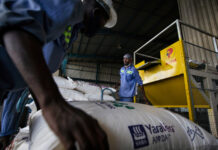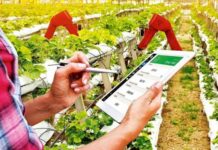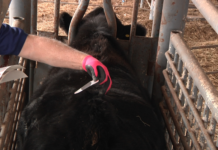Up to 80% of Africa’s agricultural production is delivered by small farms. And though common stereotypes may suggest otherwise, most of these small agricultural enterprises are heavily dependent on rural women.
With the growing acknowledgement of women’s role and contribution within a whole range of South African industries, now is the perfect time for women to assert their right to take on leadership responsibilities in the agricultural sector.
So, here’s some advice for prospective female farmers looking to make their mark in the farming industry:
Find your niche
While being keen to work on a farm is undoubtedly a prerequisite – researching and choosing the sector you want to be involved in is absolutely essential.
Livestock farming involving cattle, sheep, goats or pigs is a very different proposition to working an arable farm growing wheat and other cereals or potatoes, onions and similar vegetable crops.
The former requires a knowledge of animal husbandry skills and management techniques, whereas the latter needs a good understanding of plant and seed varieties, as well as a familiarity with fertilisers, pesticides, and of course standard machinery and harvesting methods.
It’s important to determine where your agricultural passion really lies. So, in addition to acquiring a resilient outlook, you must also hone and develop the appropriate skills and attributes required.
What could stand in your way?
It’s not only people’s diverse and demanding expectations that can be a hurdle for a woman to overcome.
As with any industrial sector, you need a range of skills and knowledge to meet the inevitable challenges a female farmer will have to face.
You may have to fight your corner and prove yourself to just about everyone: to attract and keep a skilled labour force, to secure the farm finance that will be required, and sometimes even just to get your offer accepted on a farm for sale.
So, if farming really is your calling, your credibility and future success will depend on knowing your business inside out.
Gaining finance may prove especially difficult, because banks and investors must all be convinced that you really have what it takes to be a successful farm owner.
That means careful preparation is essential: You must prepare a viable business plan demonstrating you have developed a winning strategy which will enable you to turn your chosen farmstead into a profitable business.
Once again, proving your farming skills and know-how will be the first step to gaining your plans a fair hearing, but investors will be more impressed if you can also show the extra value you can offer.
Can you bring added value to the farming industry?
For those ready to meet the challenge, there is an exciting opportunity for women to take the farming industry out of the dark ages and into the 21st century.
Modern South African farming must prove itself sustainable if it is to provide real food security. This could mean, for example, developing hydroponics systems to grow viable crop yields on small parcels of land – perhaps in an urban environment and overcoming the challenge of drought conditions by using a small fraction of the water resources usually required.
Or else it might mean using satellite and drone technology on your farm to effectively monitor livestock, optimise the application of fertilisers, or use local climate conditions to your economic advantage.
Demonstrating your ability to think and do things differently in this age of new technologies will also show your ability to adopt contemporary eco-friendly practices whilst still managing to create a thriving business capable of returning a viable profit.
This win-win situation will both impress your potential backers and prove more than popular with the growing numbers of responsible, middle-class suburban consumers who expect all their food producers to have impeccable green credentials.
Remember that climate change is now a growing threat to the farming industry all over the world.
So every farmer and farm business owner must remain conscious of the need for sustainability; which should permeate all aspects of their business planning and agricultural practices.
Note too that farming profit margins are usually modest, so it’s important to focus on new innovations within the industry as an important means of developing your farm’s profitability.
The emergence of more women farmers represents a very exciting and progressive development for the agricultural sector.
The ageing farming population is an increasing problem of global dimensions, which means there is great scope for young female entrepreneurs to develop new businesses. So, if you have always thought you would make a great farmer, it is very much down to you to prepare well, take the plunge, and show you can be part of South African farming’s next exciting phase.









